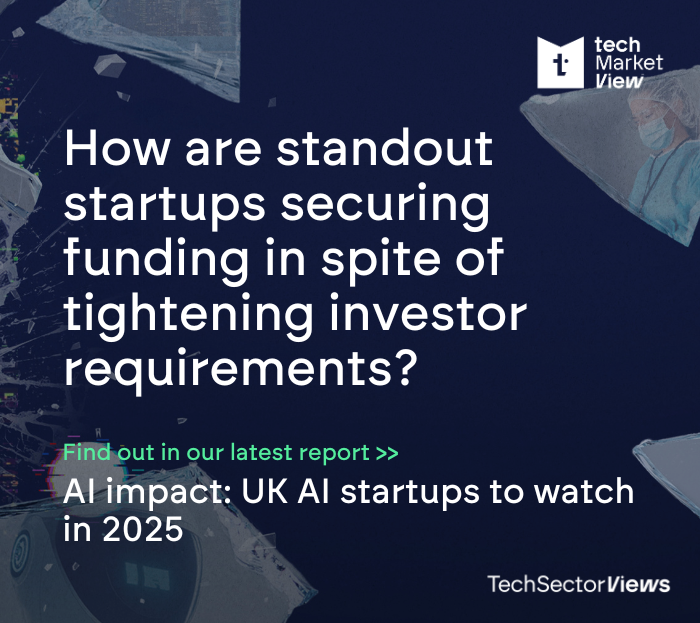AI Research
If the AI Bubble Pops, It Won’t Be the End

A report from MIT says that the overwhelming majority of generative artificial intelligence implementations are failing — 95 percent of them, in fact. That’s a lot of failure. For a series of technologies touted as the answer to every question ever asked, literally and figuratively, the incapacity of companies to effectively integrate AI into their work says a lot about the next stage of industrial mechanization, our economic system, and us. But what it doesn’t say, whatever one may hope, is that AI is doomed.
The trick here is that you’ve got to read beyond the headline. The MIT report didn’t conclude that AI doesn’t work, as flawed as it is, but rather that many integrations aren’t working, at least as of now. As Jowi Morales puts it for Tom’s Hardware, integrations are failing to produce returns “because generic AI tools, like ChatGPT, do not adapt to the workflows that have already been established in the corporate environment.”
The corporate response to these findings, or to similar ones, won’t be to abandon AI, but rather to force it even further upon workers and workplaces — reshaping established workflows, routines, and jobs themselves to fit the AI, rather than the other way around. Setbacks shouldn’t fool anyone about the direction of travel.
Over at Meta, for instance, Mark Zuckerberg is freezing hires in the AI division. Scale AI, in which the Facebook parent company has invested over $14 billion, is cutting 14 percent of its staff. The headlines are fueling talk of an AI slowdown or crash, of the bubble bursting. The pace and scale of AI investment in recent years has been accompanied by breathless talk of AI revolutions, of the imminent and irreversible shift to a new technological and industrial order. One is hard-pressed to click more than twice now while browsing the internet or opening an app or service without encountering some AI integration, from word processors to retail shop chat bots to social media and search engines and beyond. It all has the air of a Ponzi scheme on the brink of being exposed.
That scheme is already leading to tens of thousands of job losses, with more expected. The risks for workers are real. As companies go all-in on AI, even should they scale back a scooch, they remain committed to transforming work through automation — that is, to improving “efficiencies” and eroding both labor power and cost. AI is poised to kill millions of jobs around the world sooner than one might think. Yet its vaunted automation, efficiency, and autonomy rest on vast amounts of human labor — moderation, annotation, data labeling, troubleshooting, repair, and more. AI may render countless jobs redundant, but it also creates and transforms others. The catch is that many of these new jobs are miserable, and the overall shift drags down labor standards and pay.
Nonetheless, it won’t matter how much anyone insists that the AI emperor has no clothes; the hundreds of billions invested in AI have established, and will maintain, an internal hope, logic, and expectation that the series of technologies are and must be the future of knowledge, manufacturing, and service. Faced with AI’s limits and the attendant enshittification, as Cory Doctorow might put it, of so many aspects of life, one might expect technocrats and oligopolists — corporate and political alike — to pause, take stock, consult with the population at large, and adjust. But that’s unlikely. In short, the corporate world is “pot committed,” to borrow a poker term, to the AI revolution, such as it is.
Anti-AI optimists might see a bubble bursting or a revolution failing. But for those struggling over the future of labor and the democratization of AI, the smarter reading is that this is, at best, a strategic retreat or consolidation of AI integrations. This means preparing, strategizing, and responding accordingly. Meta itself framed its hiring freeze as “basic organizational planning: creating a solid structure for our new superintelligence efforts after bringing people on board and undertaking yearly budgeting and planning exercises.” As much as one might hate to admit it, the smart money right now — that is to say, the power — is on Meta and its competitors shaping the industrial space as they wish. This is especially true amid democratic backsliding in the United States and its deepening entanglement with the tech oligarchy.
To ask whether certain AI technologies will ever “work” is to ask the wrong question, or at least one of secondary, even tertiary, importance. There’s a global race to develop and deploy AI, a contest that at once encompasses a kind of geopolitical strategic jockeying that puts states at odds with one another, and a broader capitalist urge to transform technology and work in the interests of their class across state borders. The capital and political heft behind the AI movement is accordingly robust, with its devotees viewing efforts as strategic necessities rather than technological frivolities.
Setting aside that there’s a difference between types of AI, their deployments, and their integrations — some of which are already working — the core questions for labor, mass politics, and consumers are: To what ends will AI be deployed, to whose benefit, and under whose control? As things stand, there are plenty of reasons to believe the answer to each question is oligarchs and oligopolists under, perhaps, some nominal control of a technocratic ruling class that will act as, at best, a regulatory rubber stamp — and institutional investor or underwriter. And with the state itself backing the broader AI rollout, that is, as they say, the ball game.
The risk of buying into the idea that the AI bubble is bursting is that it risks lulling us into a false sense of comfort, into complacency. For those who want a technological – and political and economic – future marked by deep democratization and collective control, the starting point must be that AI, in one form or another, is here to stay. The task now is not to wait for collapse, but to organize for control.
AI Research
Marquis Who’s Who Honors Sandra E. Cheung, PhD, for Expertise in Artificial Intelligence

Marquis Who’s Who Honors Sandra E. Cheung, PhD, for Expertise in Artificial Intelligence
Sandra E. Cheung promotes AI literacy and drives technology transformations
She aims to cultivate artificial intelligence literacy among communities across the United States by planting seeds of knowledge that encourage individuals to manage future technology challenges.
BELMONT, CA, September 10, 2025 /24-7PressRelease/ — Sandra E. Cheung, PhD, has been included in Marquis Who’s Who. As in all Marquis Who’s Who biographical volumes, individuals profiled are selected on the basis of current reference value. Factors such as position, noteworthy accomplishments, visibility, and prominence in a field are all taken into account during the selection process.
Dr. Cheung is a distinguished leader in the technology and engineering sectors. Inspired by the emergence of artificial intelligence in the technology sector, she launched AImpowered in 2025, and the nonprofit organization has since been dedicated to educating people on safe and effective use of AI. As the chief executive officer of the firm, she has been instrumental in shaping the organization’s mission to bridge the digital divide and promote AI literacy, and she manages project timelines, coordinates meetings, implements key strategies, and monitors performance. Dr. Cheung also oversees budget expenditures, ensures compliance, and expertly supports her associates in their innovative pursuits.
Through AImpowered, Dr. Cheung offers workshops tailored for both children and adults, emphasizing the importance of in-person interactions for those affected by technological barriers. She is particularly dedicated to supporting individuals who struggle with technology, equipping them with the necessary tools to navigate the evolving landscape of AI. Dr. Cheung is also proud to curate content that helps parents gauge the influence of AI on home and school environments and to promote advocacy for children’s education in this field.
Drawing from her own experiences raising children during the rise of mobile phones, Dr. Cheung aids parents in grasping contemporary challenges posed by rapid technological advancement. Additionally, she prioritizes platforms that empower current technology workers to harness AI in their work. Notably, Dr. Cheung’s efforts through AImpowered prepare both parents and professionals to thrive in an increasingly AI-driven world.
In her comprehensive role, Dr. Cheung relies on experience gained from a series of pivotal professional appointments. From 2021 to 2024, she was the chief of staff and head of operations, strategy and planning at Webex, where she held oversight of operational efficiency and strategic initiatives that supported the company’s growth in collaborative technologies. Between 2018 and 2020, Dr. Cheung excelled as the director of software engineering at Cisco, and her signature leadership was pivotal in driving software development projects that enhanced Cisco’s product offerings.
From 2012 to 2018, Dr. Cheung provided technology and management consulting services at Cadushi, advising organizations on optimizing their technological infrastructure and management practices. Additionally, during her tenure as the senior director of infrastructure engineering and production operations at Yahoo! from 2005 to 2012, she played a critical role in addressing a significant crisis related to data center capacity amid financial constraints. Drawing inspiration from Yahoo!’s engineers, she collaborated with leadership to drive innovation among the company’s teams, inspiring others to look beyond conventional methods and galvanizing teams around a shared vision.
Before joining Yahoo!, Dr. Cheung was the director of network planning, design and analysis at Covad from 2003 to 2005, before which she served as the director of network engineering at Covad Communications from 1998 to 2003. In these positions, she oversaw network infrastructure development and strategic planning. Dr. Cheung began her professional journey in 1994 as a senior member of technical staff at AT&T, where she thrived through 1998.
The pursuit of service opportunities prompted Dr. Cheung to accept an appointment as the co-chair of the engineering council at Founders Creative in 2025, through which she contributes her expertise to foster innovation within the organization. Her commitment to promoting and advancing women in various fields is reflected through her membership in Women in Collaboration and her substantial leadership tenure with the Girl Scouts; additionally, Dr. Cheung is a proud co-founder and the acting president of the Silicon Valley Ice Skating Association.
Dr. Cheung’s academic credentials are impressive and include a Bachelor of Science in computer science from Florida Institute of Technology, which she completed in 1988. She also holds a Doctor of Philosophy in computer science from the University of Florida, which she proudly earned in 1993. Dr. Cheung credits her adaptability and dedication to making a positive impact on others as central to her success across diverse personal and professional platforms.
Looking toward the future, Dr. Cheung aims to cultivate artificial intelligence literacy among communities across the United States by planting seeds of knowledge that encourage individuals to manage future technology challenges. She emphasizes education as a foundation that must extend throughout all stages of learning so that younger generations can navigate change without anxiety while remaining grounded in core human values. Through her initiatives, Dr. Cheung seeks to foster collaboration and help people embrace transformative advancements.
About Marquis Who’s Who®:
Since 1899, when A. N. Marquis printed the First Edition of Who’s Who in America®, Marquis Who’s Who® has chronicled the lives of the most accomplished individuals and innovators from every significant field of endeavor, including politics, business, medicine, law, education, art, religion and entertainment. Who’s Who in America® remains an essential biographical source for thousands of researchers, journalists, librarians and executive search firms around the world. The suite of Marquis® publications can be viewed at the official Marquis Who’s Who® website, www.marquiswhoswho.com.
# # #
AI Research
Manufacturing AI Alliance unites 1,000 industry, academic, research entities – 조선일보
AI Research
*NEW RESEARCH* AI Impact: UK AI startups to watch in 2025

© TechMarketView LLP 2007-2025: Unauthorised reproduction prohibited see full Terms and conditions.
-

 Business2 weeks ago
Business2 weeks agoThe Guardian view on Trump and the Fed: independence is no substitute for accountability | Editorial
-
Tools & Platforms4 weeks ago
Building Trust in Military AI Starts with Opening the Black Box – War on the Rocks
-

 Ethics & Policy1 month ago
Ethics & Policy1 month agoSDAIA Supports Saudi Arabia’s Leadership in Shaping Global AI Ethics, Policy, and Research – وكالة الأنباء السعودية
-

 Events & Conferences4 months ago
Events & Conferences4 months agoJourney to 1000 models: Scaling Instagram’s recommendation system
-

 Jobs & Careers2 months ago
Jobs & Careers2 months agoMumbai-based Perplexity Alternative Has 60k+ Users Without Funding
-

 Education2 months ago
Education2 months agoVEX Robotics launches AI-powered classroom robotics system
-

 Podcasts & Talks2 months ago
Podcasts & Talks2 months agoHappy 4th of July! 🎆 Made with Veo 3 in Gemini
-

 Education2 months ago
Education2 months agoMacron says UK and France have duty to tackle illegal migration ‘with humanity, solidarity and firmness’ – UK politics live | Politics
-

 Funding & Business2 months ago
Funding & Business2 months agoKayak and Expedia race to build AI travel agents that turn social posts into itineraries
-

 Podcasts & Talks2 months ago
Podcasts & Talks2 months agoOpenAI 🤝 @teamganassi


